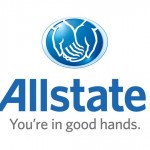With its acquisition in early 2009 of the international businesses of GAB Robins (excluding its UK operations) and the U.S. forensic engineering firm, EFI Global, Cunningham Lindsey became the second largest property casualty insurance claims adjusting and risk management firm in the world.
Insurance Journal and Claims Journal Editor Stephanie Jones caught up with Dallas-based Cunningham Lindsey U.S. (CLUS) CEO David Repinski at the PLRB/LIRB Claims Conference in Seattle in March 2009.
In part two of a two-part interview, Repinski shares his thoughts on how insurance providers and loss adjusting firms might work more effectively together. He also highlights some the challenges of finding and hiring talent in the claims area, discusses what it takes to be an effective claims adjuster, and more.
Insurance Journal: What is the nature of the relationship between independent adjusters and independent agents? Do you work with agents at all?
David Repinski: When you say agents I think personal lines and when you say brokers I think commercial lines, so taking the question literally we don’t work very much with agents. There will be times when they’ll get involved, they will call us to know the status on a loss or something like that. But really a lot of times they want to stay out of it because it might not be a pleasant subject to go back to the policyholder with.
When it comes to brokers, sure, we end up working with brokers a lot. I think they’re a lot more hands on with their commercial clients.
I think that it varies in different markets, but it’s very, very rare for an agent to assign directly to us. They’ll report to the company. A lot of times, especially if it goes quickly and smoothly, they won’t even know which independent adjusting firm has it, or whether it was an independent adjusting firm or one of the company’s staff adjusters that received it. So there’s really not much of a relationship.
IJ: How might insurance providers, like agents and brokers, and loss adjusters work better together?
DR: First of all I think the underinsuring of property is a lose-lose situation for everybody. [If] the agent doesn’t sell the policy for enough money … the company doesn’t collect enough premium, so when there’s a loss the insured finds out that they were underinsured and isn’t made whole. And everybody loses in that game.
How could we work together going forward?
It’s interesting because many times we’re the only people that ever see the property. And perhaps the only people who ever meet the insured. So the insured will deal an agent for years and years. They’ll deal with an insurer for years and years. And then they’ll meet somebody from Cunningham Lindsey or another independent adjusting firm.
So I think there would be value in saying that the independent adjuster may be the only person touching our customer, and may be the only person actually laying eyes on the risk.
I know that a lot of companies do underwriting inspections and a lot of times that’s a photograph taken at the curb. I would see some value in an adjuster going out there. …
We do what we call pre-loss inspections on commercial property because it’s a higher premium involved and a higher coverage amount involved and a higher propensity for a loss. We go out there and look at the risk before there’s any report of a loss. We understand what we’re looking at. It could be a multi building complex and the property manager calls up three months later and says I have a loss on building number five. We know what building five looks like. We photographed it beforehand. We can call it up. We’ve measured it. We understand building five is made out of brick …
There are some things we could do together. But there really hasn’t been an appetite for that in this market.
IJ: Have you seen an increase in the availability of talent in the claims industry?
DR: We own Vale [Training], and I just was in a meeting with the president of Vale who commented that we have a class of nothing but Cunningham Lindsey trainees at Vale right now. And he commented that he’s seen more and more that the caliber of our trainees that we’re sending in has increased.
This job is never sexy, being a claims adjuster. We’ve always had trouble recruiting in good times. People don’t grow up wanting to be claims adjusters, as hard as that might be for me to believe.
So when times get tough we end up with greater availability. And what we’re seeing right now in particular are a lot of people from the construction industry. They understand building, they understand building components. They don’t understand insurance; they’ve never had to deal with it. But they make great property adjusters. We can send them to Vale. We can teach them the policy, the coverage portions of it.
We are trying to hire. It’s funny every time I see on the news there’s a few sectors trying to hire, such as government, pharmaceuticals, I kind of yell back at the TV that we’re trying to hire as well.
IJ: I’ve seen statistics that suggest the need for claims adjusters is going to increase significantly.
DR: We’ve seen that too … the president of Vale had done some research looking at the Bureau of Labor and statistics and looking at what the future is going to be because obviously that impacts his training quite a bit.
IJ: So you’re getting people from the construction industry …
DR: Some of them. But also college graduates because there are not a lot of options when you come out of college right now. We’re getting them from all sorts of places but I can think of a couple of them particularly where there are strong ties to the construction industry.
IJ: I’ve heard there’s a high burn out rate because this is a very stressful job. Are there things that your company does to help your personnel?
DR: We’re trying to use two tools.
One is, our platform of verifiable quality enables us to look at it and say, you know what, this person’s case load is getting high. We’re starting to see the red flags that he or she is not able to meet some of the important milestones that our clients expect. We know they’re good people wanting to do a good job. They may be overworked or getting tired.
The other piece is that by owning Vale, we’re able to move people through on a career path. It’s usually the high volume, low severity personal lines claims that will burn people out. As we start to see that and people become efficient at handling those we can start to move them, send them back to Vale, get them trained on commercial losses. …
It’s not to say that commercial losses don’t involve stress. But most businesses aren’t open on the weekends … you never know when a homeowner’s going to call about a $1,000 kitchen fire, or whatever.
IJ: What kind of education and training do you look for?
DR: We hire both experienced and inexperienced people. Because of Vale, we’re able to grow our own and we think that enables us to create our own culture. We’ll hire experienced people when we can find somebody good with a good reputation or when time necessitates that unfortunately we don’t have time to grow our own.
Sometimes the complexity of a new program won’t enable us to put trainees on. If it’s a commercial program we can’t hire trainees, we simply can’t. So, we do both.
We put everybody through a Cunningham Lindsey course to indoctrinate them, whether they’re experienced or not.
As far as what we look for, we would like a college degree. We’ve made exceptions to that especially if there’s equivalent work experience, whether it’s in the construction trade or something like that. …
The key is interpersonal skills. You’re dealing with somebody who had something happen to them, or their car or their house or a loved one that they didn’t expect to have happen to them. So, interpersonal skills. You’re dealing with everybody from every walk of life. Everybody sustains losses.
An understanding of basic psychology is a big plus. But really the ultimate key is somebody who practices good time management.
The work load that is put on you comes from all different directions. It’s not an 8 to 5 job. And if you can’t take control of your schedule and allocate your time you’re going to fall victim very quickly and it’s going to hurt you.
So if you ask me, what kind of degree, you know, somebody with an accounting degree would be a perfect business interruption type adjuster for commercial losses. An engineer would make a good adjuster.
Any type of person would make a good adjuster as long as they can deal with people.
IJ: Are there any types of claims you would not take on?
DR: Yes. First of all, we work for insurers. We’re not going to work against them; we’re not going to be a public adjuster. We do work for large self-insured companies, but that’s on the self-insured retention that will ultimately lead to a claim. … We’re not working against their insurer in any way.
We are concerned with adjuster safety. We do a lot of lender placed work, foreclosed homes that are in inner city and some difficult areas. There are times when we have to call our client and say we need you to hire security or we need to hire security to accompany our staff. And if they say no, we’ll simply shut it down, we won’t handle the loss.
If we don’t have the experience to handle it, if we get something completely off the wall, we need to tell our client we can’t handle it. We’re just going to get ourselves in trouble if we try.
And it is last on the list but it’s still important, we have to be able to make money off of it. There are programs we’ve had to walk away from where we simply can’t make money at it.
Topics Agencies Profit Loss Claims Talent Property Training Development Construction
Was this article valuable?
Here are more articles you may enjoy.


 Marsh McLennan Agency to Buy Fisher Brown Bottrell for About $316M
Marsh McLennan Agency to Buy Fisher Brown Bottrell for About $316M  Allstate Reports $731M in Q1 Pretax Catastrophe Losses
Allstate Reports $731M in Q1 Pretax Catastrophe Losses  Former Congressman Charged After Collision with State Trooper in Florida
Former Congressman Charged After Collision with State Trooper in Florida  Progressive Gains as Drivers Shop Around for Auto Insurance—Again
Progressive Gains as Drivers Shop Around for Auto Insurance—Again 

